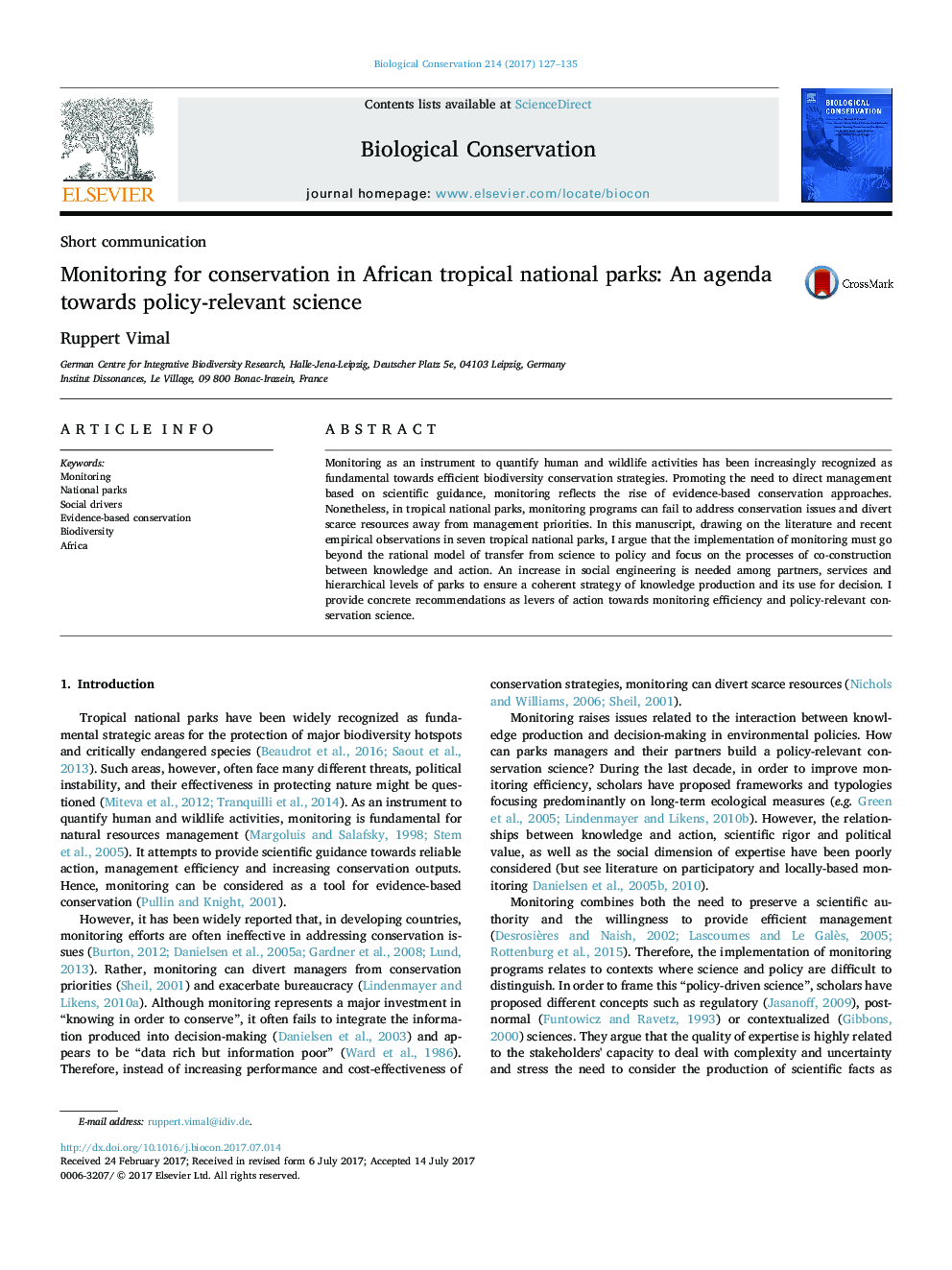| Article ID | Journal | Published Year | Pages | File Type |
|---|---|---|---|---|
| 5742963 | Biological Conservation | 2017 | 9 Pages |
Abstract
Monitoring as an instrument to quantify human and wildlife activities has been increasingly recognized as fundamental towards efficient biodiversity conservation strategies. Promoting the need to direct management based on scientific guidance, monitoring reflects the rise of evidence-based conservation approaches. Nonetheless, in tropical national parks, monitoring programs can fail to address conservation issues and divert scarce resources away from management priorities. In this manuscript, drawing on the literature and recent empirical observations in seven tropical national parks, I argue that the implementation of monitoring must go beyond the rational model of transfer from science to policy and focus on the processes of co-construction between knowledge and action. An increase in social engineering is needed among partners, services and hierarchical levels of parks to ensure a coherent strategy of knowledge production and its use for decision. I provide concrete recommendations as levers of action towards monitoring efficiency and policy-relevant conservation science.
Related Topics
Life Sciences
Agricultural and Biological Sciences
Ecology, Evolution, Behavior and Systematics
Authors
Ruppert Vimal,
